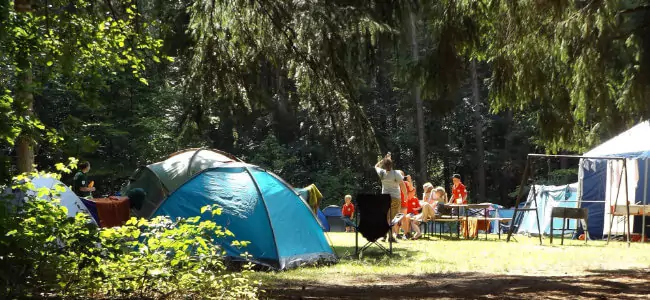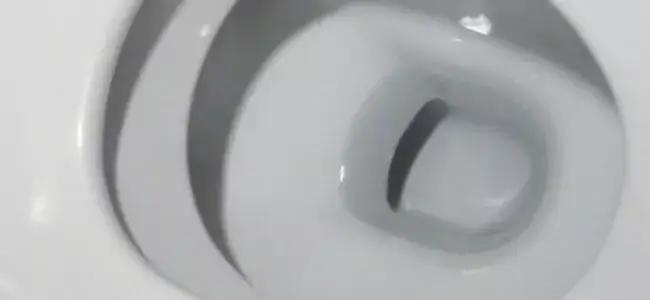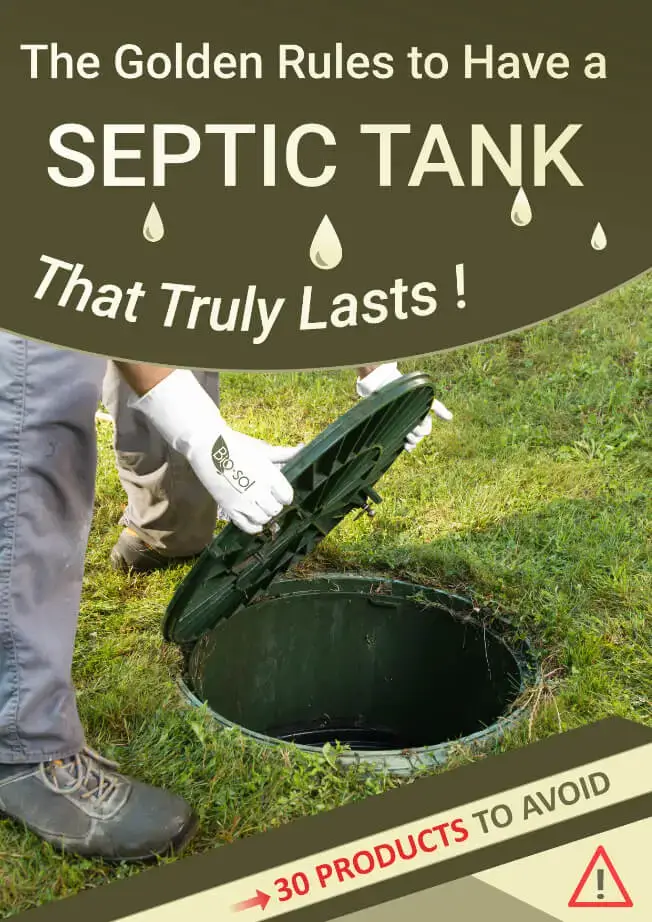Campground : all you need to know about RV dump stations

TABLE OF CONTENTS
A campground RV dump station provides recreational vehicle owners with a facility where they can empty their gray and black water tanks. Even though they are mostly used by RVers, boats that have bathroom facilities can use them as well. The campground septic system, therefore, helps to keep the environment safe because it provides for a safe option for the dumping of the RV holding tanks. Lots of RV dump stations have been closed down in recent years due to mistreatment and abuse of the facilities by the users. Dumping of chemicals and non-biodegradable waste is one of the commonest ways these facilities are abused. Some private campground septic systems have also started charging a fee for using their RV dump stations as a way of dealing with the inconveniences they face when their facilities are not used properly.
How Campground septic systems treat water
Most campgrounds use conventional septic systems. A conventional system is made up of a septic tank, a drain field, and the plumbing. Wastewater enters the septic tank where it is treated through physical and biological processes. The physical process entails the settling down of suspended solids at the bottom of the tank to form the sludge layer while the FOG settles on top to form the scum layer. The septic tank also has bacteria that digest and thereby liquefy organic waste. Effluent from the septic tank is then passed on to the drain field area for further treatment before the water percolates back into the water table.
The drainfield is typically made of perforated pipes that are in trenches that are filled with gravel. The purpose of the drainfield is to filter and remove any pathogens from the effluent before the water is sent back to the water cycle. The size of the septic system and the drainfield might, however, vary depending on the campground size. You could have a centralized drainfield with a single or a number of septic tanks but you could also have many small drainfields connected to each septic tank. You could also have pump stations for pumping the water into the drainfield.
It is also possible to have an advanced septic system on the campground. The main difference between the advanced system and the conventional system is an additional step of purification of effluent that comes from the septic tank before it goes into the drainfield. For instance, some advanced systems make use of UV light for the removal of pathogens. Advanced systems are therefore recommended for areas where there is a higher risk of polluting water bodies. An engineer will advise on the best septic system to install on your site depending on various environmental factors.
Seasonal use of campground septic systems and RV dump stations
The successful biological treatment of wastewater relies on the ability of bacteria in the septic tank to digest the organic waste in the wastewater. These bacteria grow and die in the tank contentiously. However, bacteria don’t grow instantaneously. You will always have a lag time between the decrease or increase in loading and how the bacteria respond to the changes. In an ideal scenario, there will be a constant flow of wastewater and that will stabilize the death and growth rate of bacteria.
However, this constant flow of wastewater can only be possible in homes but not at the campground. In a typical campground, attendance will be determined with seasonal patterns and the days of the weeks. For instance, weekends will attract more campers than weekdays and summers will attract more visitors than winter. For the most part, campground septic systems will experience two distinct loading patterns;
- Peak season – this is a time when the campground is full and the campground septic system is therefore in maximum utilization
- Off-peak season – a time when there is some usage but not anywhere near the peak seasons. In the off-peak season, the campground facilities will be less than 30% utilized.
Because of these fluctuations, the campground septic systems may not always run efficiently. To avoid getting into any problems with the system, it is recommended to use biological additives. These additives will add helpful bacteria into the tank and that will help to keep the entire system healthy. Using chemical additives is highly discouraged because they can damage the system not only by killing the healthy bacteria but also by corroding the walls of the tank and pipes. We recommend using Bio-Sol’s biological additives which have been specially made from bacteria and enzymes.
Types of Campground septic systems
Collection systems and RV dump stations
Collection systems can either use the force of gravity or rely on pressure-flow created from pumping. Gravity flow systems that don’t have septic tanks will need large pipes and manholes that are spaced at regular intervals. For systems that have septic tanks, smaller diameter pipes can be used without manholes. In situations where it is not possible to implement a gravity-flow system, a system that uses a pump will be designed. It may include the use of large pumps that are capable of pumping solid waste and systems that use a septic tank to liquefy solid waste before it is pumped. Additionally, some systems use grinder pumps which shred the wastewater into smaller particles before they are pumped.
Maintenance of collection systems
Campground Collection systems must be monitored and taken care of all year round to avoid pollution and messy accidents. The following are some important maintenance routines;
- Check the flow rate between the manholes to ensure there is no obstruction. You can put colored tissue in the wastewater to determine if the flow rate is still ok.
- If you experience any blockages, use a biological cleaner to unblock the lines.
- Check all manholes to ensure surface water is not entering. Remove any soil that might have settled at the bottom of the manholes.
- In the unlikely event that some repair needs to be done, contact a contractor and have it repaired immediately.
Treatment systems
There are different kinds of wastewater treatment and different units are usually combined to make a campground treatment system. The level of treatment needed is dependent on how the wastewater is to be disposed of in tandem with the regulatory standards that apply. Septic tanks are the most commonly used type of primary treatment option on campgrounds. Septic tanks are typically made from precast concrete or fiberglass although other materials like plastic and steel can also be used. Septic tanks use a combination of physical and biological processes for treating wastewater. Suspended solids are digested by bacteria in the septic tank and the rest of the solids that are not broken down settle down to form a layer of sludge. This sludge is eventually pumped out of the tank every 3-5 years depending on the local legislation.
Campground septic systems are often strained because it is not easy to control what every camper is using in their RV holding tanks. Every time an RV tank is emptied into the campground septic systems, there is a high likelihood of toxic substances being part of the waste. For this purpose, it is imperative to use shock treatment to improve the efficiency of the campground septic tank. Shock treatment entails the introduction of biological additives which will help to restock the bacteria colony in the tank. For instance, Bio-Sol’s shock treatment product introduces billions of helpful bacteria and enzymes into the system. The enzymes work hand in hand with the bacteria by breaking down the organic waste to make it more palatable for the bacteria to consume.
Avoid damaging campground septic systems and RV dump stations
A septic tank should serve you for at least 30 years. However, how long it lasts will depend on how well you take care of it. Here are some noteworthy tips for septic tank maintenance.
- Do not drive RVs or any other heavy machinery above the septic tank as that may cause physical damage to the septic tank and pipes.
- Occasionally check the sludge depth to determine when the next cleaning is due
- Periodically add biological additives to improve the efficiency of the system
- Do not use chlorine, antibacterial soaps, or any other commercial cleaning compounds because these will kill the helpful bacteria in the tank
- Avoid planting trees near the septic tank because their invasive root systems can cause irreparable damage to the septic tank
- Avoid compacting of soil over the drain field area because the soil needs to be sufficiently aerated for the aerobic bacteria to treat the wastewater before it seeps into the soil
Conclusion
The most important thing to remember about the campground septic system is that they will not be used uniformly across the year. This seasonal usage will affect the rate at which bacteria die and reproduce in the septic system. Campground septic systems also receive lots of toxic substances from the different RV holding tanks. Most of the cleaning products used by RVers are not septic friendly and that can have adverse effects on the health of bacteria in the campground septic system. Thankfully, you can mitigate this by adding biological additives. That said, RVers should be encouraged to desist from using products that are not septic safe.
OUR LATEST BLOG POSTS

Strange facts about septic systems
If you are a septic system owner, you might have heard all manner of myths. For instance, there is a common myth that throwing a dead cat in the septic tank can help rejuvenate bacteria and thereby make the septic tank more effective. But is this even true? In this article, we will not only answer that […]

Soils types and their impact on septic systems
SOILS TYPES AND THEIR IMPACT ON SEPTIC SYSTEMS However good your septic system is, it depends on the right soil type to complete the process of purifying the wastewater from your home. The soil type in the drainfield area will determine how well the effluent is filtered and if the water that is sent back to the […]

Avoid flushing these if you have a septic tank
Most homeowners wrongfully assume that their toilet can serve as some sort of garbage disposal. As a result, they end up flushing all manner of things in the toilets. Some of the things that are flushed down the toilet are actually innocent mistakes because homeowners think that is the right way to dispose of the products while in other cases, it is just a don’t care attitude. Whichever the case may be, flushing some of these things can result in septic system failure and it could cost you a fortune. We have rounded up some of the commonly-flushed products that you should never flush if you have a septic system.
PERFECT! I WOULD NEED...
Discover which products are the best for your needs!You can contact us at 1-800-378-6132 (toll free) or click on the following button to access our free online evaluation.
GET A QUOTE ONLINELog in to your account
Whoops! It happens sometimes...
CREATE A NEW ACCOUNT
CONGRATS!
You are now registered and ready to go. You can add and change any of your information on your client profile.
Unfortunately, we do not ship our products to the USA at the moment.
But, if you live in the United States and would like to order them, please fill in the form below. You will then be notified as soon as they are available in your country.
Thank you for your understanding!
Malheureusement, nous n’expédions pas nos produits en France pour le moment.
Mais, si vous êtes résident français et aimeriez les commander, remplissez s’il vous plaît le formulaire ci-dessous. Nous pourrons ainsi vous aviser aussitôt qu’ils seront disponibles dans votre pays.
Merci de votre compréhension!

-
30 products to avoid
-
What to replace them with
-
And everything you should know about your septic system
DOWNLOAD THIS FREE EBOOK!
Which email address should we send it to?


